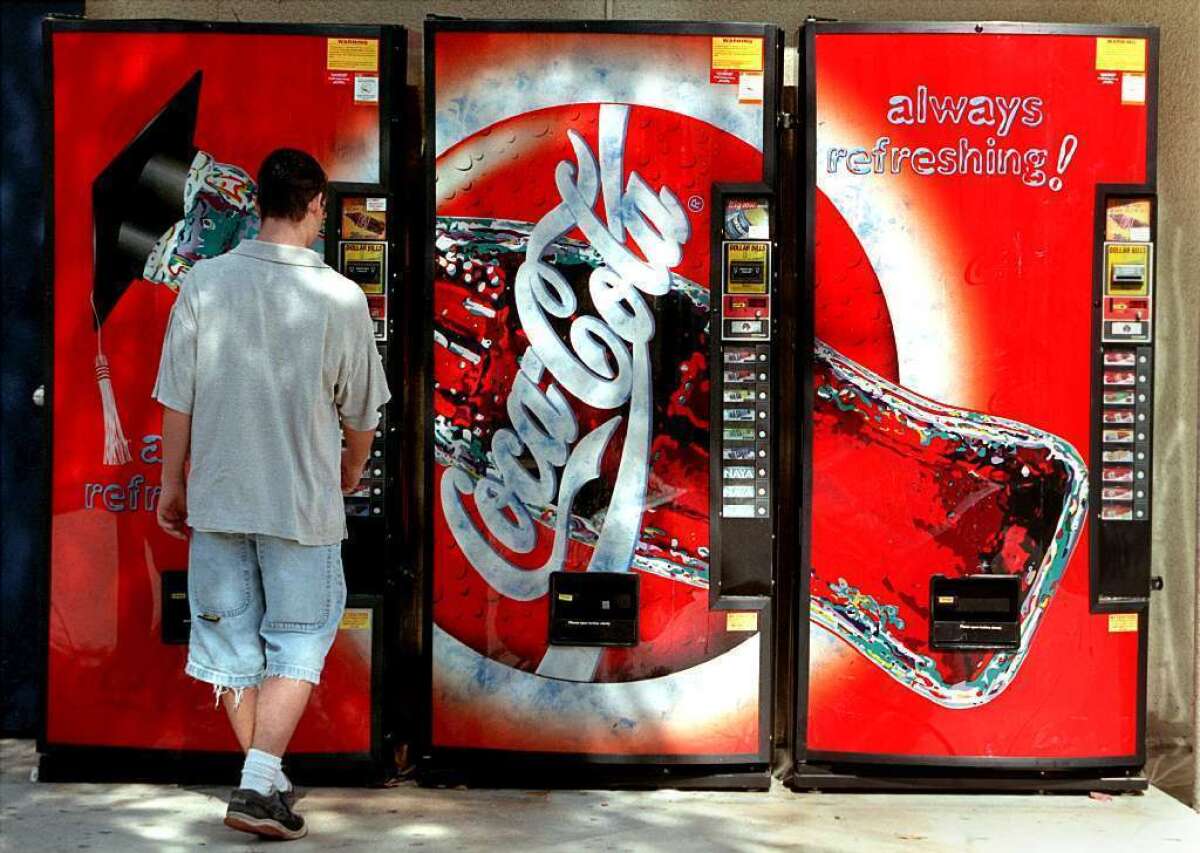Americans consume too much added sugars, study says, and it’s killing us

Americans consume too much sugar, and our collective sweet tooth is killing us.
So says a study published Monday by the journal JAMA Internal Medicine. It finds that 71.4% of U.S. adults get more than the recommended 10% of their daily calories from added sugars in foods and drinks – and that higher levels of sugar consumption are correlated with higher risk of death due to cardiovascular disease.
“Too much sugar does not just make us fat; it can also make us sick,” Laura A. Schmidt, a professor of health policy at the UC San Francisco School of Medicine, wrote in a commentary that accompanies the study.
Researchers used data from the National Health and Nutrition Examination Survey, or NHANES – a large study updated each year by the Centers for Disease Control and Prevention – to measure changes in sugar consumption over time and to see its effect on health. Added sugars were defined as “all sugars used in processed or prepared foods, such as sugar-sweetened beverages, grain-based desserts, fruit drinks, dairy desserts, candy, ready-to-eat cereals, and yeast breads, but not naturally occurring sugar, such as in fruits and fruit juices.”
Between 1988 and 1994, Americans got 15.7% of their calories from added sugars, on average. That figure rose to 16.8% in the years 1999 to 2004, then fell to 14.9% between 2005 and 2010, the researchers found.
RELATED: San Francisco moves to put sugary-drink tax on ballot
In the most recent period studied, about 10% of adults got more than 25% of their calories in the form of added sugar. Nonsmokers, African Americans and people under the age of 60 ate and drank more added sugar than other adults.
For the second part of the study, the research team – which included experts from the CDC, Emory University and the Harvard School of Public Health – took a close look at 11,733 people who were part of NHANES between 1988 and 2006 and were tracked for a median of 14.6 years. During those years, 831 people died as a result of cardiovascular disease.
The study participants were divided into five groups based on their sugar consumption. People in the lowest group got fewer than 9.6% of their calories from added sugars, while those in the highest group got more than 21.3% of their calories from added sugars, the researchers found.
Compared to the people in the lowest group, those in the highest group were more than twice as likely to die during the follow-up period, according to the study. But they weren’t the only ones who put their health in jeopardy. People in the second-highest group of sugar consumption saw their risk of death due to CVD rise by 7%; those in the middle group saw their risk rise 18%; and those in the fourth-highest group had 38% greater odds of CVD death compared to the people in the baseline group.
All of these figures were adjusted for age, gender, race, income, smoking and drinking history, exercise habits, body mass index and diet quality, among other factors. The increases in the risk of death were considered too large to be due to chance.
In general, people who consumed more added sugar also had more fat and cholesterol in their diets, and they ate less meat, vegetables and grains, according to the study.
Soda and other types of sugar-sweetened beverages were the No. 1 source of added sugar in American diets, accounting for 37.1% of the sweeteners. Those were followed by grain-based desserts (13.7%), fruit drinks (8.9%), dairy desserts (6.1%) and candy (5.8%).
RELATED: Foods that affect your risk of cancer
In the past, experts focused on obesity and cavities as the primary health problems related to over-consumption of added sugars. But recent studies have linked the sweeteners directly to high blood pressure, high cholesterol, cardiovascular disease, diabetes, liver cirrhosis and dementia, among other chronic health problems, Schmidt wrote.
The study findings “support the logic” for implementing a tax on sodas and other sugar-sweetened beverages, Schmidt added. Fifteen countries have such taxes, but campaigns to implement them in the U.S. have failed miserably. So too have efforts to remove sugar from the Food and Drug Administration’s list of ingredients that are “generally recognized as safe” – as long as sugar retains this status, food manufacturers will remain free to use as much of it as they want.
The new study “holds potential to turn the political tide by demonstrating that added sugar is not as benign as once promised,” Schmidt wrote.
Perhaps, but that doesn’t seem likely in a country where experts can’t even agree on how much added sugar can be part of a healthful diet. The Institute of Medicine advises adults to keep added sugars below 25% of their total caloric intake, while the current Dietary Guidelines for Americans from the U.S. Department of Agriculture and Department of Health and Human Services recommend devoting only 5% to 15% of calories to sugar, fat and other forms of “discretionary calories.” The American Heart Assn. says women should eat and drink no more than 100 calories worth of added sugars per day, while men should not exceed 150 calories per day.
The World Health Organization says the upper limit on added sugars should be 10% of total calories.
If you’re interested in the latest scientific and medical studies, you like the things I write about. Follow me on Twitter and “like” Los Angeles Times Science & Health on Facebook.







